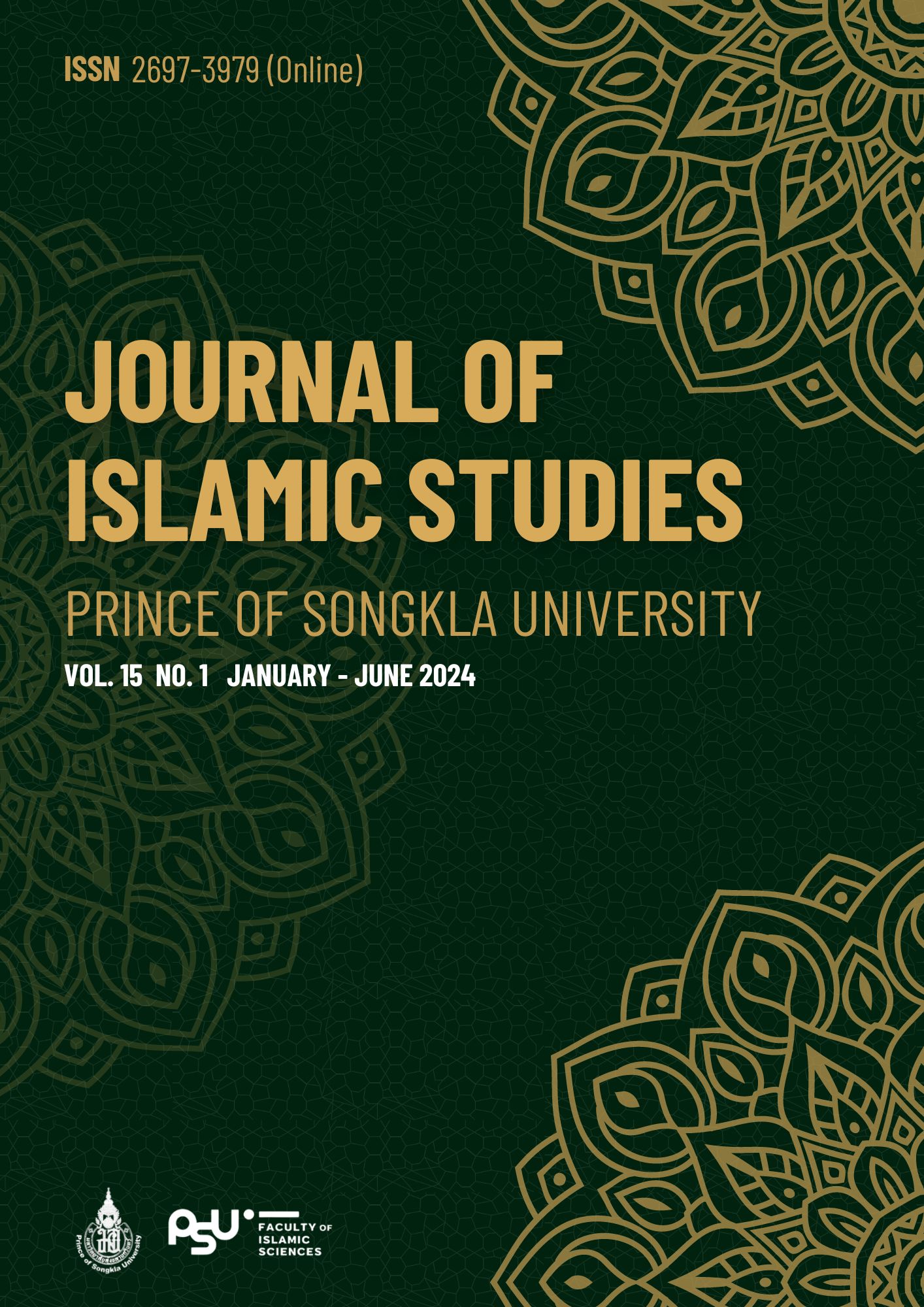Conditions, Problems and Solutions of the Islamic Way of Orphan Care System in the Southern Border Provinces Orphanages
DOI:
https://doi.org/10.14456/jois.2024.10Keywords:
Care, Orphans, Islamic Way, Southern Provinces, ThailandAbstract
Objectives: The objectives of this research are 1) to study caring for orphans according to the Islamic way 2) to study conditions and problems of caring for orphans according to the Islamic way in orphanages in the southern border provinces and 3) to study guidelines for developing the caring system for orphans in the southern border provinces.
Methodology: This research is qualitative research presenting data descriptively and analytically, and collecting document data from al-Quran, al-Hadith, and views of Muslim scholars including related research. The study uses interviews with those concerned consisting of orphan caretakers in the southern border provinces, namely Pattani, Yala, Narathiwat, and Songkhla (4 districts include: Cana Thepha Nathwi and Sabayai) by using a purposive selection method.
Research findings: 1. Islamic principles encourage Muslims to take an interest in and provide assistance to orphans, and a part of taking care of orphans according to the Islamic way includes; 1) taking care of the management of orphans' property, 2) caring for and giving love to orphans in the form of foster families, 3) promoting both religious and vocational education for orphans, and 4) protecting and preserving the rights of orphans. 2. The conditions and problems of caring for orphans in orphanages in the southern border provinces include 1) lack of personnel in some areas, 2) budget and expenses, 3) lack of personnel in training religious knowledge and general education, and 4) lack of attention from leaders of areas and government support. 3. Guidelines for developing the caring system for orphans in the southern border provinces are as follows; 1) recruiting adoptive families, 2) organizing activities to create thinking processes, 3) supporting self-expression in the right way, 4) promoting education, and 5) conducting psychological assessment in each area to provide effective guidelines of the system.
Contribution: The research results can be used as guidelines for developing the orphan care system in the southern border provinces to meet the goals and achieve maximum benefit.
References
Bingasan, B. (2004). săa-raa-nú-grom ìt-sà-laam chà-bàp yao-wá-chon láe pôo rêrm sŏnjai. [Encyclopedia of Islam for Youth and Beginners]. Al amin.
Chelong,A., & Leaheem,K. (2021). Islamic Learning Paradigm for the Development of Muslim Youth Behavior in the Three Southern Border Provinces of Thailand. Journal of IslamicStudies,Prince of Songkla University, 12(2), 1-15.
Chomaria, N. (2014). Cara Kita Mencintai Anak Yatim. Aqwam.
Hamid, R. (2017). Kafalah al-Yatim dari Perspektif Hadis Nabi.Jurnal Ushuluddin: Media Dialog Pemikiran Islam,17(1), 108-122. https://doi.org/10.24252/jumdpi.v17i1.2271
Ibn Majah, A. Y. Q. (1997). Sunan Ibn Majah(Vol. 2). Dar al-Fikr.
Khamphuch, K. (2022). ù-bpà-sàk kŏng yao-wá-chon chaai daen dtâi · nai gam-paeng kŏng kwaam mân kong. [Obstacles for Southern Border Youth Within the Walls of Security: Data from the 2022 Youth Survey]. The 1O1 World. https://kidforkids.org/deepsouth-youth-obstacles/
Kanchanaphat, K.(2015). The Development of Orphan’s Quality of Life Affected by Unrest Situations. Parichart Journal, 27(2) 64-81.
Karina, A. (2008). The Science of the Quran and Assunnah.College of Islamic Studies, Prince of Songkla University.
Kateh, S. (2022) Kontribusi MulnithiNusantara (Yayasan Nusantara) terhadap Pemberdayaan Anak Yatim di Patani-Thailand Selatan Menurut Perspektif Hukum Islam [Unpublished master’s thesis]. Universitas Islam Negeri Alauddin Makassar.
Komolnimi, T. (2022). dèk gam-práa chaai daen dtâi · pôo dtòk lòn jàak rá-bòp yiieow-yaa láe gaan sèuk-săa bon taang dtan[Southern Border Orphans: Those Falling Through the Healing and Education System on a Dead-End]. Equitable Education Research Institute. (EEFI). https://research.eef.or.th/thitinob-komalnimi-orphan-southern-border
Muslim. (1955). Sahih Muslim. Dar Ihya’ al–Turath Al–‘Arabi.
Al-Maududi. (2012). Tafhim al-Quran. Maktabah al–Nur.
Al–Qurtubiy, A. (2006). Tafsir al–Qurtubiy. Dar Ihya’ al–Turath al–Arabiy.
Downloads
Published
How to Cite
Issue
Section
License
Copyright (c) 2024 © The Author(s). Published by the Journal of Islamic Studies, Prince of Songkla University under the Creative Commons Attribution 4.0 International License.

This work is licensed under a Creative Commons Attribution 4.0 International License.
All articles Published in The Journal of Islamic Studies are author’s opinions, and not the responsibility of the Faculty of Islamic Sciences nor the editorial board. However any citation should be referred to the journal.




















